Gum disease is a low-grade chronic bacterial infection also called periodontal disease or pyorrhea. While everyone has bacteria in their mouths, not everyone develops gum disease. There are identifiable risk factors that can make it more likely for the bacteria in your mouth to result in destructive gum disease. We now know that due to these risk factors some patients can clean their teeth and visit the dentist religiously and still have gum problems.
Over time, food and bacteria tend to collect between the teeth and gum. If this debris is not adequately removed, the bacteria migrate deeper under the gumline. In a susceptible patient, a space or “pocket” forms between the tooth and gum. Once these pockets of bacteria form below the gumline, you can not reach them even with good toothbrushing and flossing. The bacteria multiply and cause the gum cells to release a variety of substances that aggravate and inflame the gum tissues. The gum tissue and then the supporting bone are slowly destroyed. If enough bone tissue is destroyed, the teeth loosen and are eventually lost.
Gum disease rarely causes pain or any symptoms since the infection readily drains up through the gum. Often you can not tell if you even have gum disease until the gum is inspected and checked for pockets. It’s like having termites in your house. Above the ground the house looks fine, but the foundation is slowly being destroyed without you even knowing it. It’s the same way with gum disease. Just because it doesn’t hurt doesn’t mean all is well. Unlike looking for termites, we do not need to wait until damage has been done to tell if you have gum disease. We can detect gum disease early and prevent or repair its damage. You can keep watch also. Bleeding is a strong indicator of gum inflammation. Healthy gums do not bleed at all when brushed or flossed. If you have any gum bleeding when you clean your teeth, your gums are inflamed.
We now know that this ongoing bacterial infection in your mouth can have far reaching effects elsewhere in your body. When the gums are chronically inflamed, these bacteria can gain entrance into your bloodstream and spread to other parts of your body. Gum disease increases your risk for heart disease. Gum disease has been linked to pulmonary infections and gastric ulcer reinfection. Gum disease in diabetics makes control of blood sugar more difficult. Gum disease during pregnancy increases the risk for a pre-term, low birth weight baby. The American Academy of Periodontology’s website (www.perio.org) has patient-oriented information concerning the increased risk for other health problems when gum disease is allowed to persist.
The progression of gum disease can be halted if the bacteria and debris are removed from these pockets. Traditionally, gum treatment consisted of cutting the diseased gum away with the hope that what would remain would heal and be healthy. Fortunately, a variety of new techniques has allowed us to successfully treat chronic gum infections much more conservatively. Removing large amounts of diseased gum and then “packing” the gums is a thing of the past. That’s a welcome relief to patients. We are innovative in our treatment protocols. Our foundational approach is to use aggressive, but non-surgical or minimally invasive procedures to help you achieve and then maintain a preferred level of oral health.

